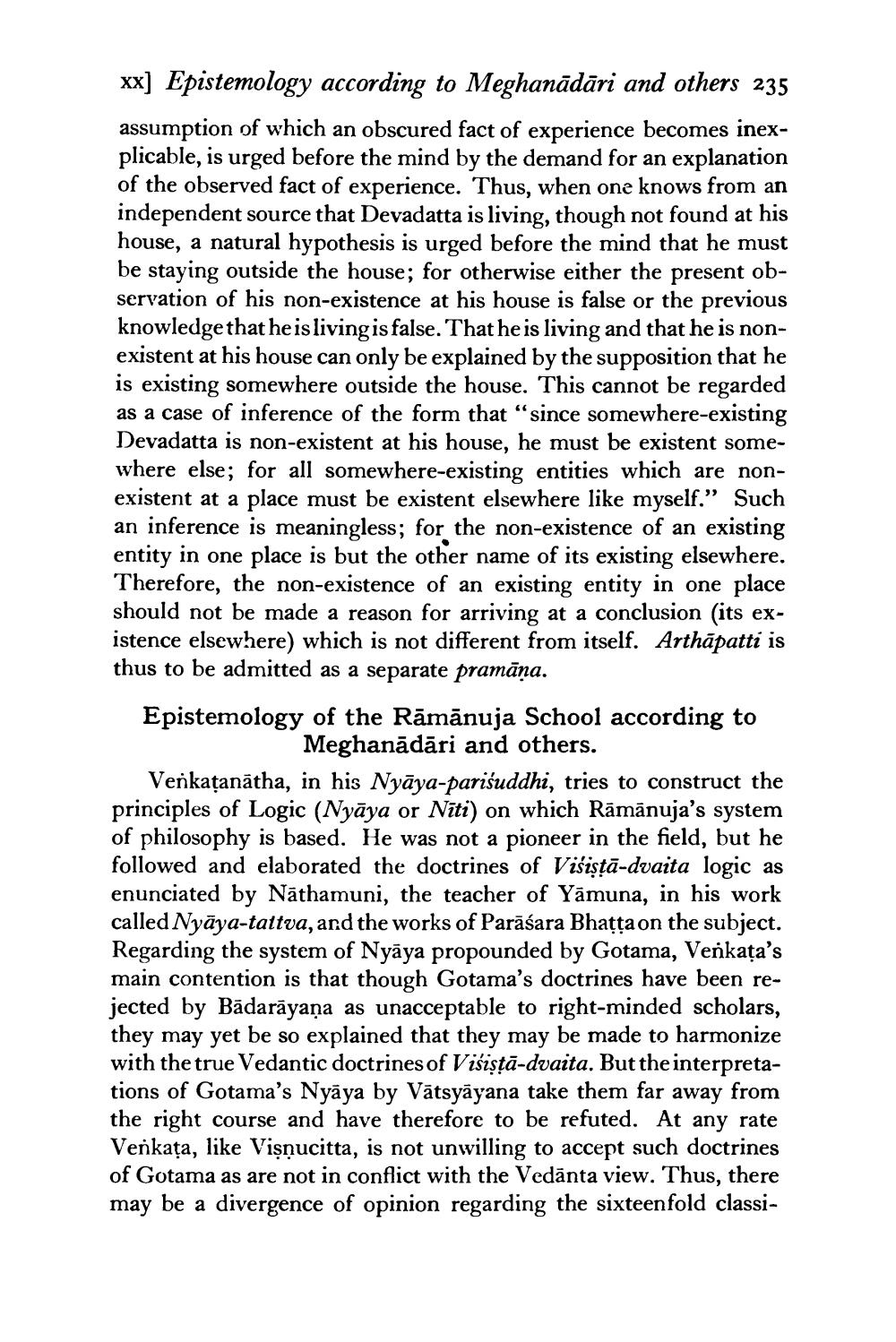________________
xx] Epistemology according to Meghanādāri and others 235 assumption of which an obscured fact of experience becomes inexplicable, is urged before the mind by the demand for an explanation of the observed fact of experience. Thus, when one knows from an independent source that Devadatta is living, though not found at his house, a natural hypothesis is urged before the mind that he must be staying outside the house; for otherwise either the present observation of his non-existence at his house is false or the previous knowledge that he is living is false. That he is living and that he is nonexistent at his house can only be explained by the supposition that he is existing somewhere outside the house. This cannot be regarded as a case of inference of the form that “since somewhere-existing Devadatta is non-existent at his house, he must be existent somewhere else; for all somewhere-existing entities which are nonexistent at a place must be existent elsewhere like myself.” Such an inference is meaningless; for the non-existence of an existing entity in one place is but the other name of its existing elsewhere. Therefore, the non-existence of an existing entity in one place should not be made a reason for arriving at a conclusion (its existence elsewhere) which is not different from itself. Arthāpatti is thus to be admitted as a separate pramāņa. Epistemology of the Rāmānuja School according to
Meghanādāri and others. Venkațanātha, in his Nyāya-parisuddhi, tries to construct the principles of Logic (Nyāya or Nīti) on which Rāmānuja's system of philosophy is based. He was not a pioneer in the field, but he followed and elaborated the doctrines of Višistā-dvaita logic as enunciated by Nāthamuni, the teacher of Yamuna, in his work called Nyāya-tattva, and the works of Parāśara Bhattaon the subject. Regarding the system of Nyāya propounded by Gotama, Venkata's main contention is that though Gotama's doctrines have been rejected by Bādarāyaṇa as unacceptable to right-minded scholars, they may yet be so explained that they may be made to harmonize with the true Vedantic doctrines of Višiştā-dvaita. But the interpretations of Gotama's Nyāya by Vātsyāyana take them far away from the right course and have therefore to be refuted. At any rate Venkața, like Vişnucitta, is not unwilling to accept such doctrines of Gotama as are not in conflict with the Vedānta view. Thus, there may be a divergence of opinion regarding the sixteenfold classi




